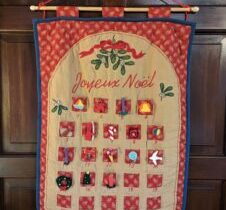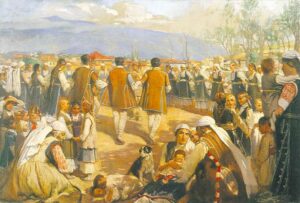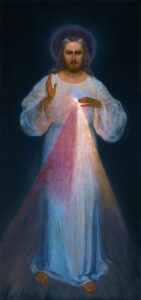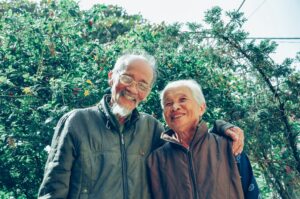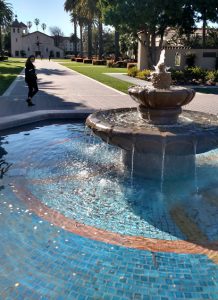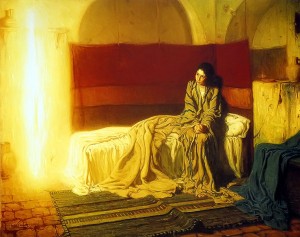Joy – Much more than simple happiness
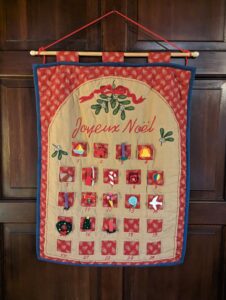 I’ve been thinking a lot about joy these past few days. Joy is a fruit of the Holy Spirit, right up there with love and peace at the beginning of the list of them given to us by St. Paul in his letter to the Galatians. It’s not a passing phenomenon like happiness. It’s something much deeper that is rooted in the Spirit. Through good times and bad, joy is a response to the presence of God working in us and in the world.
I’ve been thinking a lot about joy these past few days. Joy is a fruit of the Holy Spirit, right up there with love and peace at the beginning of the list of them given to us by St. Paul in his letter to the Galatians. It’s not a passing phenomenon like happiness. It’s something much deeper that is rooted in the Spirit. Through good times and bad, joy is a response to the presence of God working in us and in the world.
Isaiah speaks of bringing glad tidings to the poor, healing to those whose hearts are broken, liberty to captives, a year of favor. The prophet rejoices in the Lord who brings salvation and makes justice and praise spring forth in the land. (Is 61:1-2a, 10-11) Isaiah spoke in and about the same land in which hearts on both sides of a war are being broken today. How will justice, peace, and joy blossom again? How does joy appear in the midst of sorrow and pain?
Yet in all things, we are called to rejoice. We are to pray unceasingly and give thanks for all that comes to us – we can and will learn and grow closer to God as we do. St. Paul promises that the God of peace will make us holy and ready for the coming of the Lord. (1 Thes 5:16-24)
John the Baptist came to testify to the light that was coming into the world. He was clear with all who came to him that he was not himself the light. His role was to be a voice in the wilderness calling all to prepare the way of the Lord. Another was coming. This other one would be much more important, but in the meanwhile, he himself would continue to call people to repentance and to prepare for the one already present among them, the one who was to come. (Jn 1:6-8, 19-28)
Joy is fundamental in each of these messages. Joy is a characteristic that is more stable than happiness. Even in hard times, one can be joyful, recognizing the sustaining presence of God in the midst of those hard times.
In Surprised by Joy, C.S. Lewis noted that like happiness and pleasure, anyone who has experienced joy will want to have it always. “I doubt whether anyone who has tasted it would ever, if both were in his power, exchange it for all the pleasures in the world. But then Joy is never in our power and Pleasure often is.” Joy is enduring and deep rooted.
Author Michela Summa notes in Joy and Happiness, “joy is not only a direct emotional response to an event that is embedded in our life-concerns but is also tightly bound to the present moment…” She contrasts this to happiness which is experienced at the culmination of a process. Joy is present through the entire process.
Dr. Pamela King, of Fuller Theological Seminary has been researching joy in her work in Applied Developmental Psychology. In an interview in 2020 in Psychology Today, she said:
“I have observed that many people have an enduring and underlying sense of something that is deeper than the emotion of happiness, and I have come to describe this as joy. In my study of joy, I have also noticed that joy is more complex than a feeling or an emotion. It is something one can practice, cultivate, or make a habit. Consequently, I suggest that joy is most fully understood as a virtue that involves our thoughts, feelings, and actions in response to what matters most in our lives. Thus, joy is an enduring, deep delight in what holds the most significance.”
“An enduring, deep delight.” This is something much more than happiness and contentment. This is a quality of openness and acceptance and delight in the presence of God in all things. When all is well and when all is perfectly awful, God is present with us, giving strength and courage. This, as a priest I knew years ago once said, “is pretty good news!” In this we rejoice. In this we trust. In this we move forward on our journey of life.
As we move through this Third Week of Advent and quickly approach the celebration of Christmas, may we pay attention to God’s presence in our daily lives and activities. May we rejoice in those with whom we interact. May we find time to rest in the love of our God who took time to enter into humanity as a real human child.
Our family Advent Calendar now includes three candles for the first three weeks of Advent. Today the pink candle joins the festivities, reminding us all to prepare in joy for the Lord’s coming.
Rejoice. The Lord is near!
Readings for the Third Sunday of Advent – Cycle B
Read More



